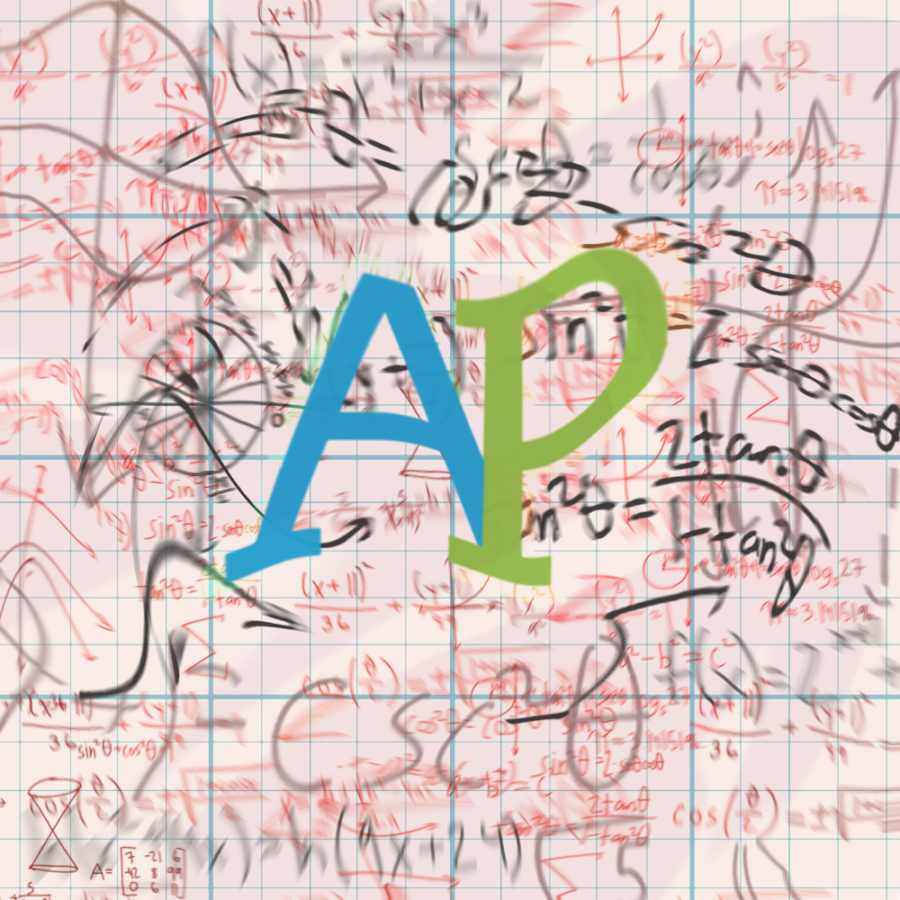AP PRECALCULUS: A Precursor or Poison for Pupils?
Many students have expressed their disapproval for an AP Precalculus course at EHS.
March 20, 2023
Joining the thirty eight other Advanced Placement classes, the College Board plans on introducing an AP Precalculus class in the coming year. The course, meant for anyone who has taken both Geometry and Algebra 2 or Integrated Math 3, would consist of four units: polynomial/rational functions, exponential/logarithmic functions, trigonometric/polar functions, and functions involving parameters, vectors, matrices.
The not-for-profit organization stresses the importance of precalculus, claiming that taking the class increases a student’s likelihood of finishing a 4-year college by 155% through strengthening their remedial math skills and preparing them for calculus, an advanced math class which students often struggle with.
The College Board argues that an AP class would provide better instructional support through AP Classroom, a curriculum centered around real-world application, and 140 hours with a teacher, compared to a mere 48 in college; it also argues that the “AP” nature of the class would excite students, motivating them to complete their four-year math requirement with fervor.
Some students at EHS question this reasoning.
“We’re forced to take four years of math, [so] don’t I have to be excited regardless? AP Pre-Calculus doesn’t change anything,” Algebra 1 student Edna Ramirez-Guerrero ‘26 said.
Similarly, Geometry student Sahil Patel ‘25 claimed that such a course wouldn’t really excite him.
“I don’t know if it will actually help, or just be a more difficult version of honors precalculus. And, either way, we will be taking enough APs. So, I don’t know if this extra class matters enough, or it will just be another unnecessary AP,” said Sreshta Mitta ‘26.
Other students seem excited at the prospect of an AP Precalculus class, but perhaps not for the reasons provided by the College Board.
“I like the idea. I feel like it would help me get used to AP classes. But, I don’t know why. It would probably be for the namesake. I don’t think people take them just for the education,” said Anika Yadavalli ‘26, an Honors Algebra 2 student.
Current precalculus students acknowledge that they would take the course, but their reasons vary from prestige to saving money to general routine behavior.
“I don’t know about the richness of APs, but I take them. I think it wouldn’t have made a difference though, because precalculus is not a part of the common college courses. Even if I got a 5, it would not have made a difference,” said Aanya Arora ‘25, an Honors Precalculus student.
Regardless of the sentiments surrounding the class and getting that additional AP on students’ transcripts, EHS is unlikely to get the class until the 2024-2025 school year and even then, it would only be available for seniors who completed Algebra 2 in their junior year, according to Math Supervisor Ms. Elizabeth Lell. She explained the Edison school district has long fulfilled the purpose of the AP Precalculus course with a rigorous course load and the option to take precalculus over the summer for students wishing to challenge themselves with advanced content. Therefore, replacing Edison’s precalculus curriculum with the AP version would hinder students’ experiences.
“Our goal is to prepare our students for college and not limit their access to a rigorous curriculum,” Lell said.
Additionally, Lell highlighted the financial drawbacks of taking an AP course, as sometimes the so-called “college credit” promised through the AP test (costing 100 dollars) is rejected by universities. For instance, the University of Pennsylvania reports “For students matriculating in or after 2017 (Class of 2021 and subsequent classes), the Biology department no longer awards credit for the College Board AP Test or the Higher Level International Baccalaureate Exam.”
However, current precalculus students such as Arora, claimed saving money was a huge motivation behind taking AP courses.
So, while the College Board might be promoting this new addition to the AP library, it seems as if EHS will continue with the normal standard: rigor, education, and student-centered learning, with or without the AP label.
























































































